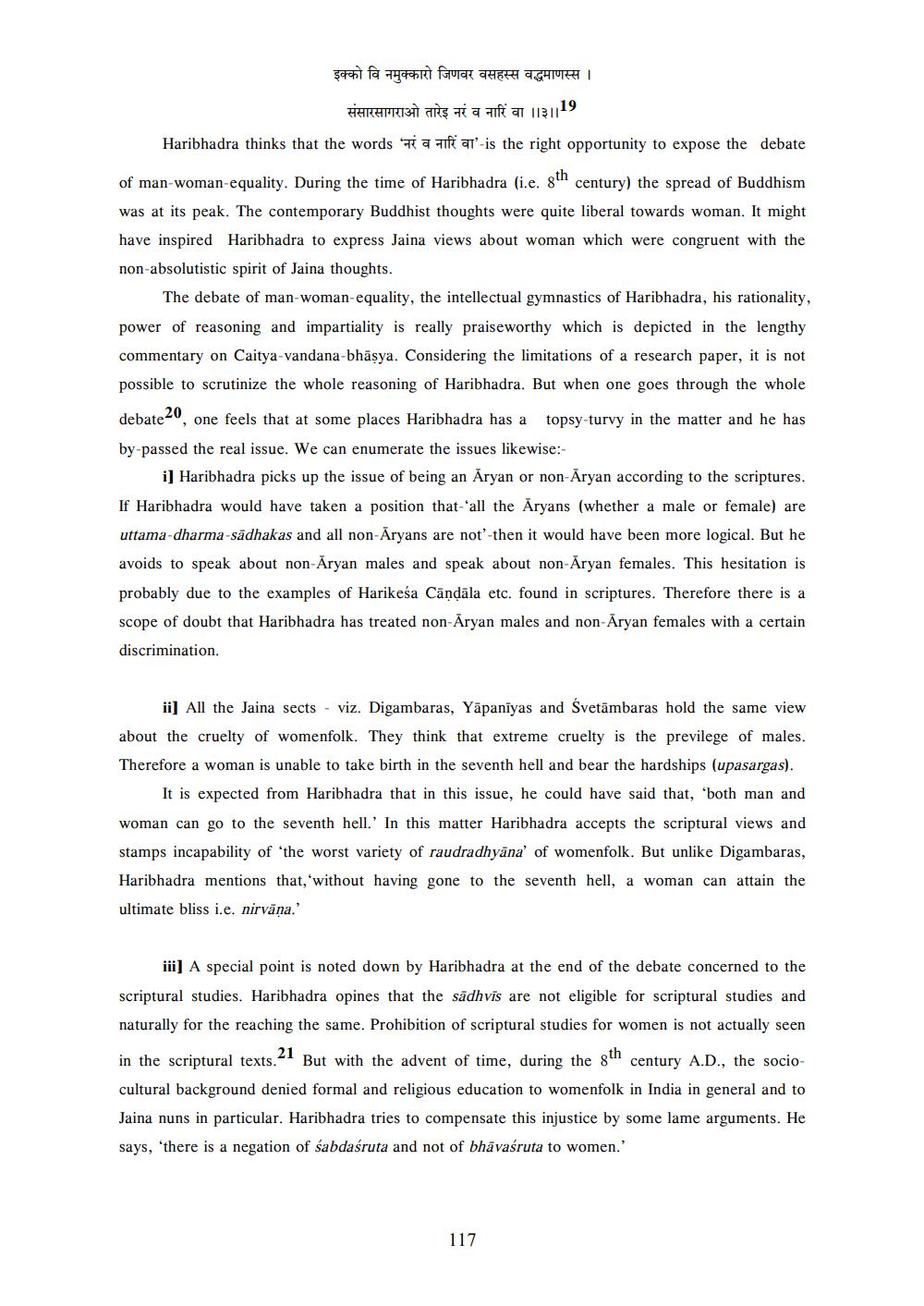________________
इक्को वि नमुक्कारो जिणवर वसहस्स वद्धमाणस्स ।
HARATRI31 ans a a af at 1131,19 Haribhadra thinks that the words a h at-is the right opportunity to expose the debate
of man-woman-equality. During the time of Haribhadra (i.e. 8 century) the spread of Buddhism was at its peak. The contemporary Buddhist thoughts were quite liberal towards woman. It might have inspired Haribhadra to express Jaina views about woman which were congruent with the non-absolutistic spirit of Jaina thoughts.
The debate of man-woman-equality, the intellectual gymnastics of Haribhadra, his rationality, power of reasoning and impartiality is really praiseworthy which is depicted in the lengthy commentary on Caitya-vandana-bhāsya. Considering the limitations of a research paper, it is not possible to scrutinize the whole reasoning of Haribhadra. But when one goes through the whole
debatez, one feels that at some places Haribhadra has a topsy-turvy in the matter and he has by-passed the real issue. We can enumerate the issues likewise:
i] Haribhadra picks up the issue of being an Aryan or non-Aryan according to the scriptures. If Haribhadra would have taken a position that all the Aryans (whether a male or female) are uttama-dharma-sādhakas and all non-Aryans are not'-then it would have been more logical. But he avoids to speak about non-Aryan males and speak about non-Aryan females. This hesitation is probably due to the examples of Harikeśa Cāndāla etc. found in scriptures. Therefore there is a scope of doubt that Haribhadra has treated non-Aryan males and non-Aryan females with a certain discrimination.
ii] All the Jaina sects - viz. Digambaras, Yāpaniyas and Svetāmbaras hold the same view about the cruelty of womenfolk. They think that extreme cruelty is the previlege of males. Therefore a woman is unable to take birth in the seventh hell and bear the hardships (upasargas).
It is expected from Haribhadra that in this issue, he could have said that, 'both man and woman can go to the seventh hell.' In this matter Haribhadra accepts the scriptural views and stamps incapability of the worst variety of raudradhyāna' of womenfolk. But unlike Digambaras, Haribhadra mentions that, without having gone to the seventh hell, a woman can attain the ultimate bliss i.e. nirvāna.'
jii] A special point is noted down by Haribhadra at the end of the debate concerned to the scriptural studies. Haribhadra opines that the sadhvīs are not eligible for scriptural studies and naturally for the reaching the same. Prohibition of scriptural studies for women is not actually seen
in the scriptural texts.21 But with the advent of time, during the gth century A.D., the sociocultural background denied formal and religious education to womenfolk in India in general and to Jaina nuns in particular. Haribhadra tries to compensate this injustice by some lame arguments. He says, 'there is a negation of sabdasruta and not of bhāvasruta to women.'
117




